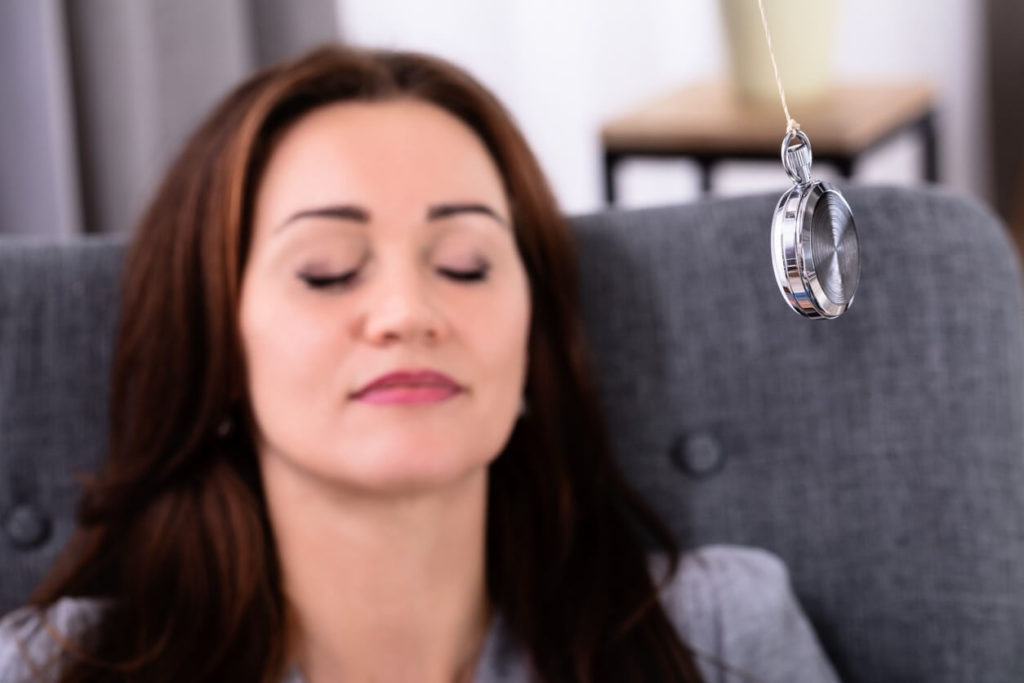Self-hypnosis to sleep and get back to sleep?
Written by: Loris Vitry (holistic coach)
Validated by: Cathy Maillot (Osteopath)
Caution: If you have any medical questions or concerns, please speak to your doctor. Even if the articles on this site are based on scientific studies, they do not replace professional medical advice, diagnosis or treatment.

73% of French people wake up at least once a night for 10 to 30 minutes.
1 in 3 people have a sleep disorder in France.
Fortunately, the solution to many sleep problems lies in hypnosis, as it is a wonderful tool for calming the mind and relaxing the body.
Self-hypnosis has exactly the same effect on brain wave cycles as when a person falls asleep normally.
The shift from mindfulness to a hypnotic trance state gradually slows down brain waves and naturally guides you to an ideal state for deep, restful sleep.
In addition, according to an English study, only 10% of humans can resist hypnotic techniques.
Find out in this article how to sleep and regain sleep thanks to self hypnosis.
Change your habits
Before you even think about using self-hypnosis for sleep, you need to start by changing your habits.
Indeed, by waking up in full sleep, sleeping poorly or not at all, it becomes part of the brain’s routine.
The body sends a command to the brain, without your consciously asking for it.
If you always go to bed at the same time, try to do it a little earlier.
Sleep occurs in cycles, with a pattern of deep sleep and REM sleep.
This means that even ten minutes can dramatically change and improve the sleep pattern.
Turn off all electronic devices at least an hour before bed, avoid eating and drinking late at night, and cut down on caffeine and alcohol if you can.
Take a bath, read a book and play some relaxing music.
Knowing that stress contributes greatly to disrupting the quality of your sleep, remember to stay away from all situations that could cause it to arise.
When you break this routine, you will find that your sleep habits and the quality of your sleep will be greatly improved.
Your bedroom should also give you a good nights sleep.
Make sure you sleep in complete darkness.
Learn to relax
The more relaxed a person is mentally and physically, the more likely they are to get quality sleep.
The relaxation techniques used in self-hypnosis and meditation are a great help for deep and restful sleep.
These techniques slow down brain waves and relax the mind and body.
When you are in a state of self-hypnosis or deep meditation, it is easy to shift to deep, restful sleep afterwards.
Slowly paced relaxation music created in certain keys can help create a state of relaxation ideal for restful sleep.
Prepare yourself
When you are lying in bed and ready to sleep, silently tell yourself that you are going to use self-hypnosis to fall asleep.
You can then relax your body.
Imagine that every muscle, from the top of your head to the tips of your toes, relaxes completely.
You can start at the top and work your way down consistently to the toes.
Imagine that your eyelids have become heavy and tired and all the tension in your forehead goes away.
All the muscles in it relax and unwind.
Keep up the momentum and imagine all the muscles relaxing in your jaw, neck, shoulders, back, arms, and legs.
Imagine the relaxation that pervades your body and takes away any tension in the muscles.
You can visualize the muscles relaxing and spending more time relaxing any part of your body that is more tense.
Let the outside world fade away and continue your journey into your inner world.
Use the following affirmations to help you let go:
- I sleep easily at night;
- I feel deeply relaxed;
- I feel calm and centered;
- I like to sleep at night.
As you repeat these affirmations, silently or out loud, imagine that each part of you absorbs the sentences with real conviction.
Use your feelings and emotions to supercharge them so that every cell in your mind and body resonates with every positive affirmation.
Calm your mind
One of the main obstacles to sleep is “busy mind syndrome”.
Clearing your mind before bed will make it much easier to fall asleep.
If you constantly review the problems in your mind and the stresses of the day, your judgment darkens.
On the other hand, when you mentally relax and consciously turn off your thoughts, you take back control.
The following self-hypnosis technique will allow your creative mind to find solutions to problems, while calming your conscious mind and preparing you for sleep.
When you are lying in bed and have a problem going round in your mind, recognize it and assert yourself that you are finding a solution.
Close your eyes and start to breathe in very slowly and deeply through your nose and breathe out through your nose.
Make each breath long and deep, and release any tension with each slow exhale.
Let your mind calm down and empty itself.
A blank mind is the key to this technique, so spend some time keeping your mind still.
Don’t worry if you still have unwanted thoughts coming to your mind; just let them go away again.
After about fifteen minutes, when you feel pleasantly relaxed and your mind is very calm, begin to accept that your unconscious mind is finding a solution to this problem.
Avoid thinking about the problem itself or a solution, as this will only stimulate your intellect.
Your goal is to simply focus on your creative mind’s ability to find solutions and to say it will.
By doing this, you are programming your mind to provide you with a solution without thinking about the problem itself.
While in this deeply relaxed still space, you can also repeat one or more of these affirmations:
- A solution will come to me at the right time;
- my creative mind will give me the right answer;
- I trust my own judgment.
When using affirmations, remember to put your feelings into them, as this makes them stronger and anchors them deeper in your subconscious.
So really feel that every statement is a reality as you affirm it.
After these affirmations, you can fall asleep knowing that your unconscious mind will find a solution to your problem.
At this point, you can indulge in a deep natural sleep that will wake you up feeling invigorated.
Good luck, and sleep well!
Continue reading:
Have character: how to have a strong personality?

